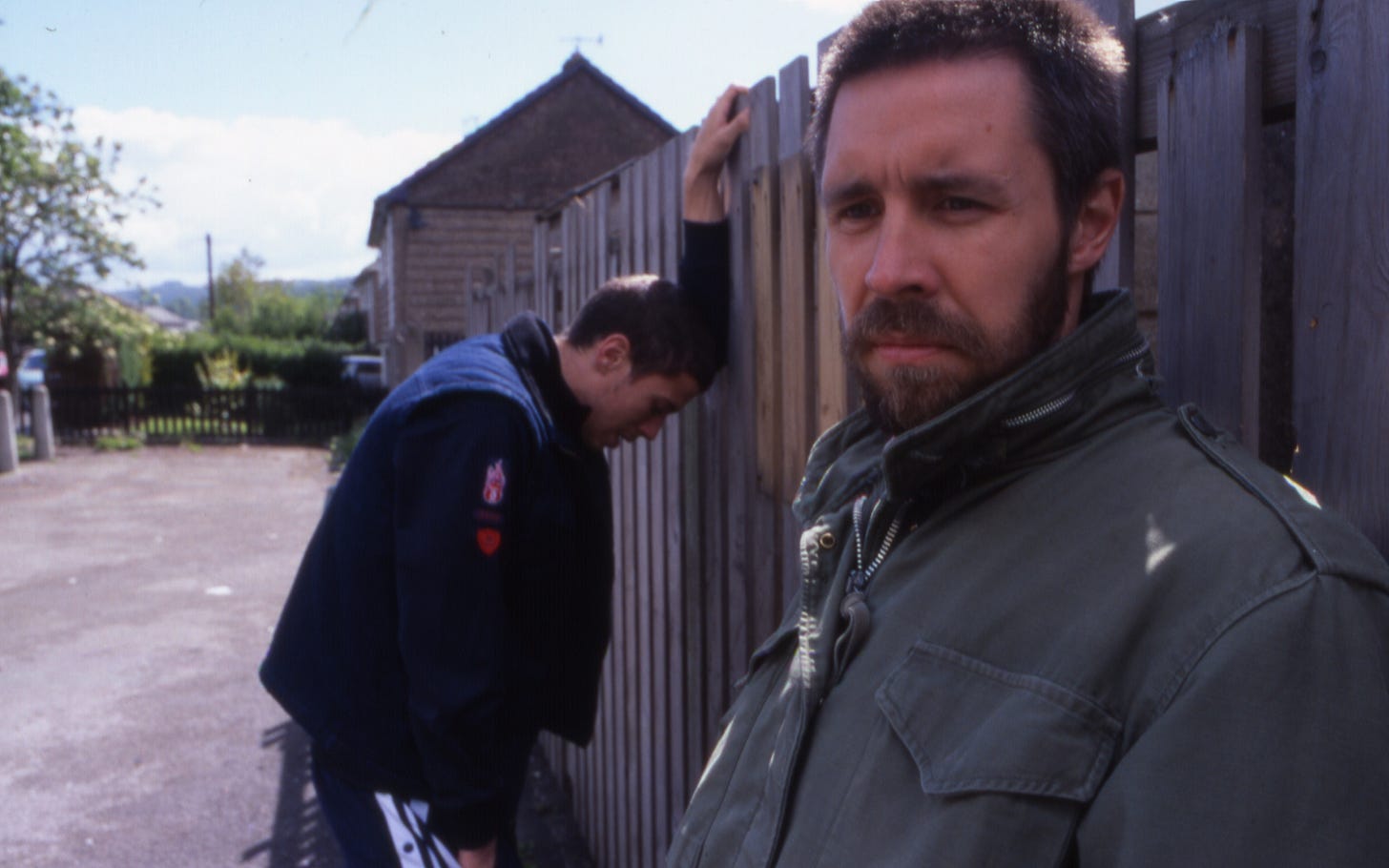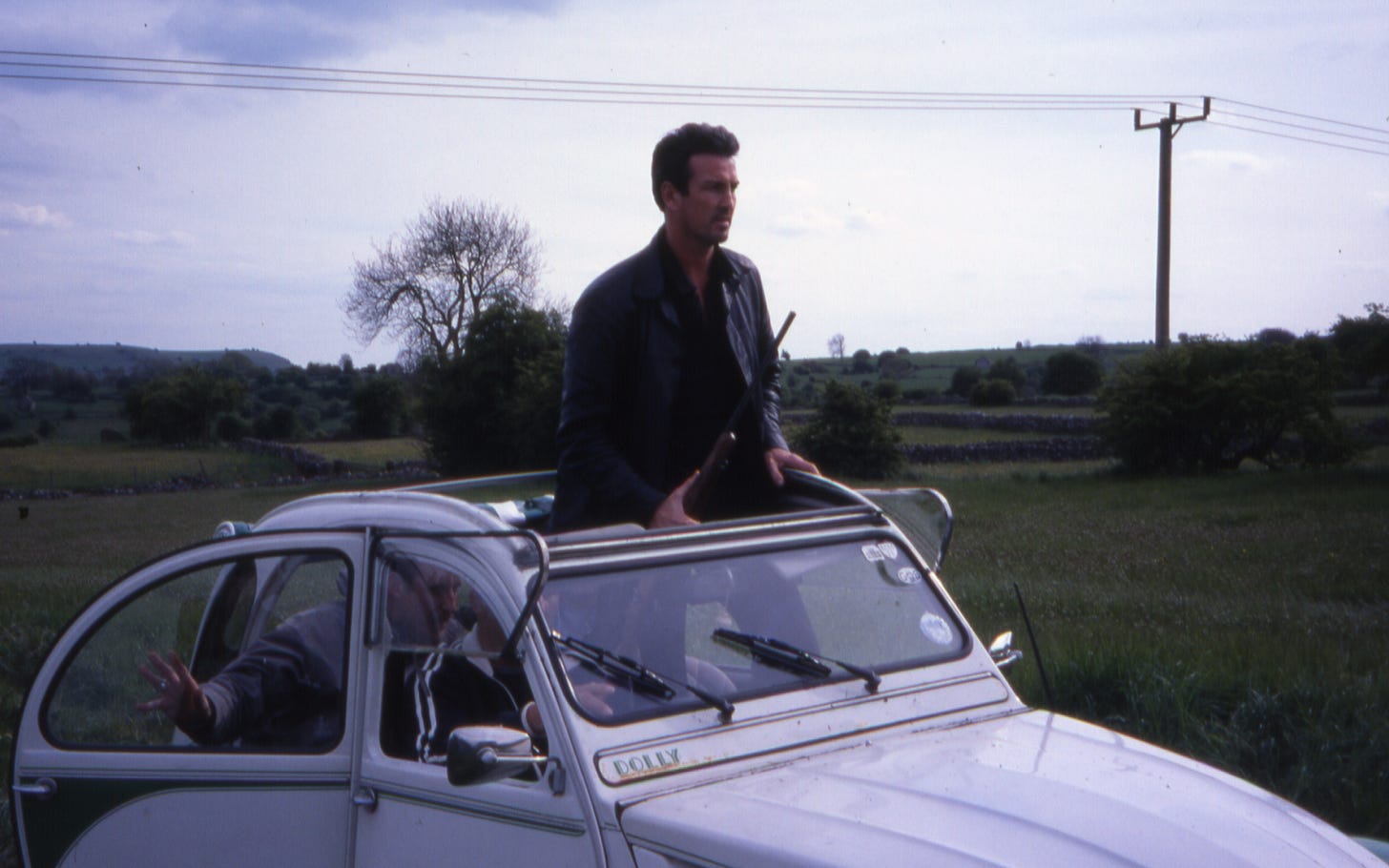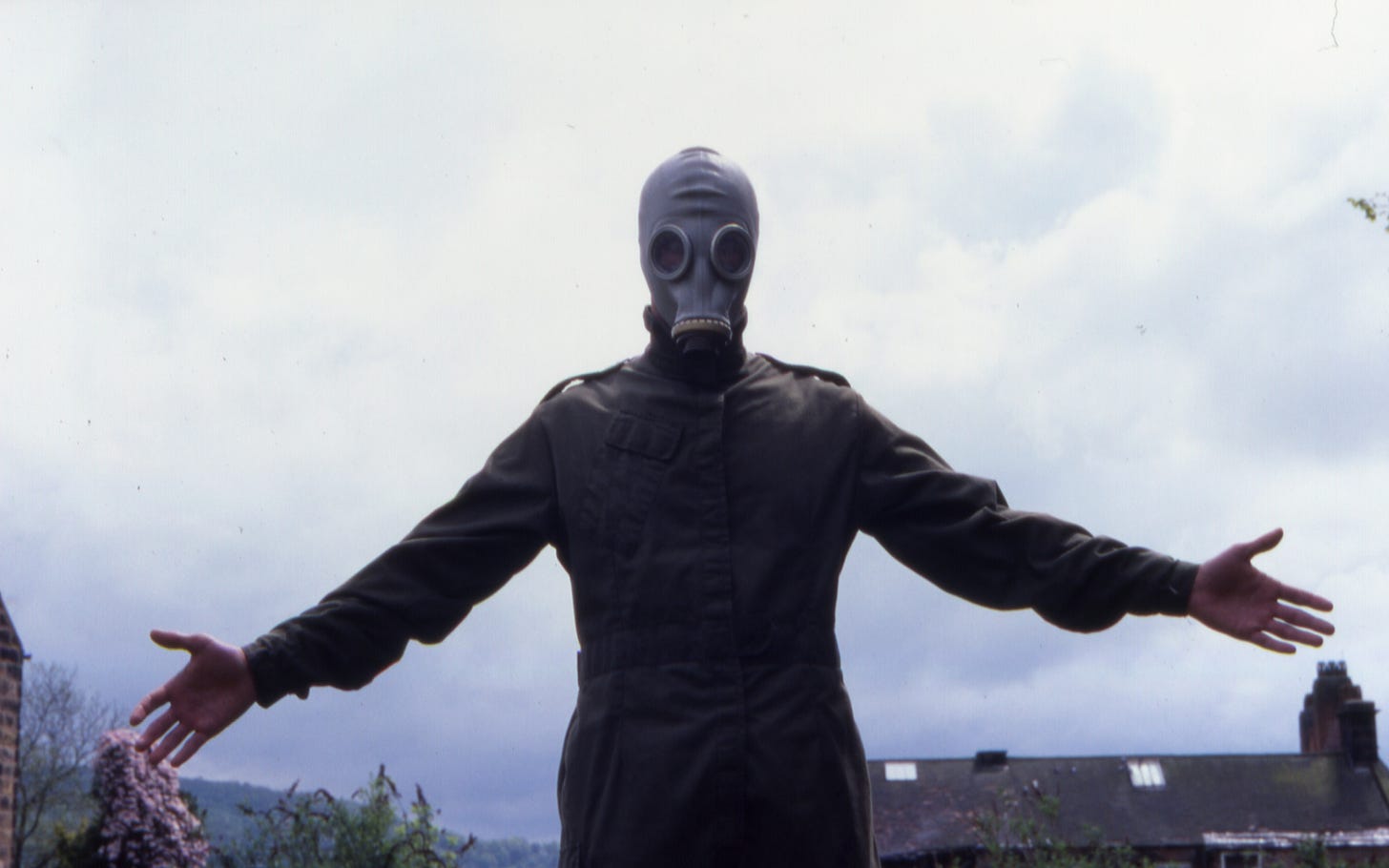
Spoilers for Dead Man’s Shoes (2004). Trigger warnings for discussion of suicide, discrimination and disabilities.
The 2004 revenge thriller Dead Man’s Shoes eschews the typical formula and instead focuses on the human impact that vengeance takes. Throughout its tight 90 minutes, you could pick any number of scenes that show the consequences of violence, setting this apart from any number of Hollywood blockbusters where bullets fly, and nameless thugs drop without another thought.
Perhaps the most devastating scene is at the finale after Richard (Paddy Considine) has systematically murdered the local drug gang that drove his developmentally disabled younger brother Anthony (Toby Kebbell) to suicide, he tracks down one final man. Mark (Paul Hurstfield) has long since left the group and started a family, and while he was not directly involved in the bullying of Anthony, he did nothing to stop it.
Having tormented Mark’s family, forcing him to admit to his wife Marie (Jo Hartley, making her debut here) what happened in his youth, Richard takes him hostage and forces him to return to where Anthony hung himself. Whereas his previous encounters with the gang members have been about intimidation, relentlessly working their way towards sudden bursts of violence, Richard cannot bring himself to kill Mark.
He questions the sobbing man; and asks why he did nothing to stop the abuse of Anthony. Tells him that he could have stopped a lot of carnage if he had. Much of the script was improvised across a series of rehearsals and workshops, with the bare bones of the story put together by Meadows, Considine and Paul Fraser, which gives the script a naturalistic feel, heightening the emotional impact as this scene plays out.
What becomes clear is that much of the anger Richard feels is due to his perceived failure as an elder brother. He calls Anthony an embarrassment, a tragically ironic moment as the gang often tells Anthony that Richard joined the army because he was embarrassed by him. Richard has taken revenge on the gang as a twisted penance for his failures, but the violence he has inflicted has not made the loss any easier to bear.
Richard: Was he screaming my name?
Mark: Yeah, he was.
Richard: He still is.
Instead of quietening the memory of his brother, the voice has continued to drive Richard forward. However, seeing the life that Mark has made for himself, and the genuine remorse for the abuse of Anthony causes Richard to second guess. The other members of the gang had continued to be poor characters, dealing drugs in their small town, acting like bullies and responding to Richard’s initial confrontations with threats of violence.
They were clear-cut bad guys, making Richard’s violence towards them easier for him to stomach.
You... you were supposed to be a monster. Now I'm the fuckin' beast.
With Mark, Richard tells Anthony that he cannot kill again and implores Mark to kill him instead. He hands him the knife and tells him he will continue to do terrible things with it if Mark doesn’t use it.
The scene ties together a series of themes throughout the film. The first is Richard’s inability to forgive those who hurt his brother. Considine’s voice opens the film, saying:
God will forgive them.
He'll forgive them and allow them into heaven.
I can't live with that.
In the opening moments, the audience is told that this will not have a happy ending. Meadows’ has made his career with socially conscious, realistic stories, and audiences who knew the director would have understood that this vendetta would be as damaging to Richard as it was to anyone else – even before we’re told that Anthony has died (the character appears throughout the film but it isn’t until the final set of flashbacks that we know he is part of Richard’s psyche).
The film is also a comment on how someone, anyone, can stop a bad situation from becoming worse. Mark knows that he should have stopped the gang from bullying Anthony, or at the very least not left Anthony (who had been forced to consume acid and attacked) alone. We’re shown Mark’s remorse, but the fact is that any number of people could have stopped the abuse. Nearly all the gang members, barring the ringleader Sonny (Gary Stretch) show a certain level of remorse at various points throughout the film, even if it is primarily driven by fear.
Richard recognises that he has become as bad as the people who killed his brother. His assaults on the gang have been psychological, as well as physical. To get to Mark, he gives his two young children a gas mask and a knife while out in the park. Initially, it’s a comment on how we protect those we love, and Mark quickly bundles the children up and goes in search of Richard. By the finale, Richard sees this moment as the point of no return. By using innocents to extend the carnage he has inflicted, he becomes a beast. One that will not stop on his own accord.
As is so often true in real life, a justifiable action in our minds can escalate a situation beyond our control. Vengeance in Shane Meadows’ East Midlands world does not end with the bad guys in body bags and the hero living out the rest of their life. Violence begets violence and the cycle leads all involved to a mutual destruction.
Director: Shane Meadows
Writers: Shane Meadows, Paddy Considine, Paul Fraser
Starring: Paddy Considine, Toby Kebbell, Gary Stretch








